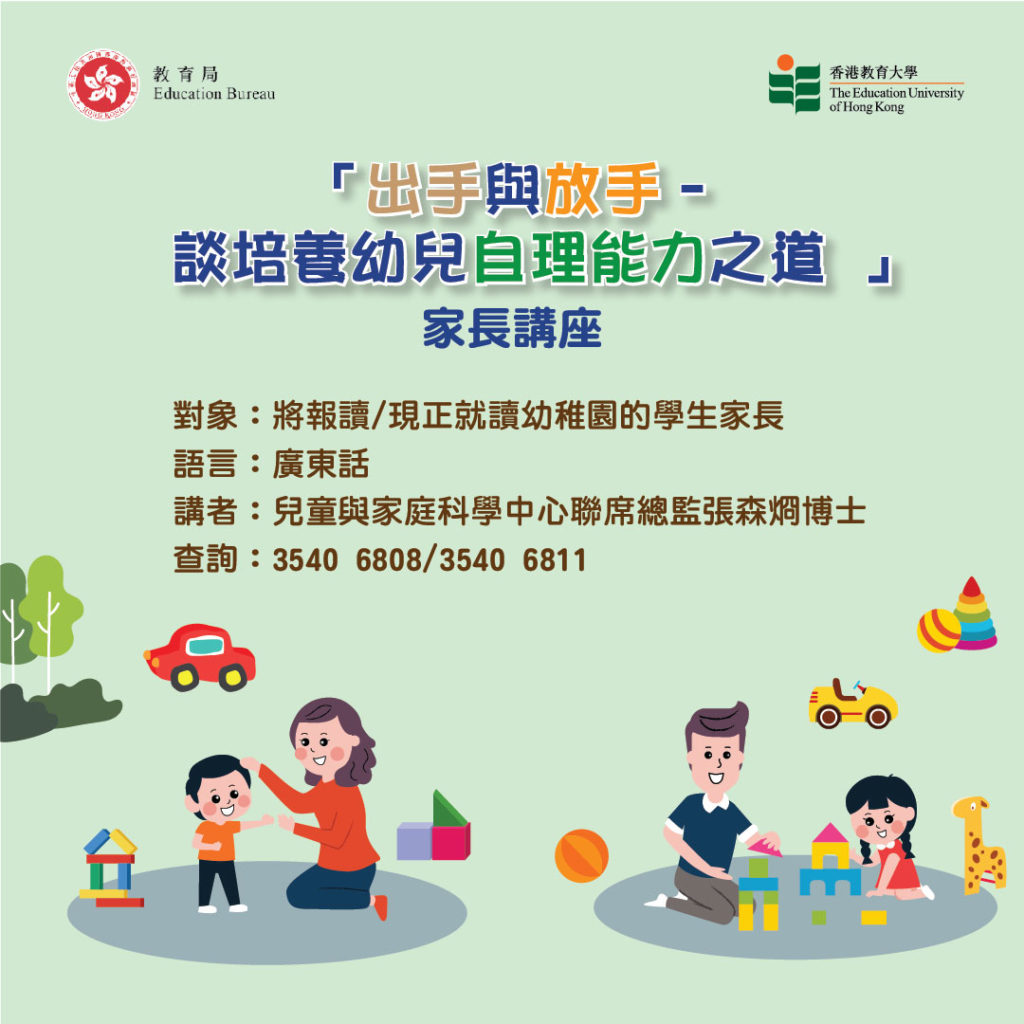Parent Seminar on “Let kids go, let kids grow – The art of promoting young children’s self-care skills” (Videos on EDB You Tube Channel) (Conducted in Cantonese)
In daily life of young children, should parents step in to offer help and assistance in every task, even buttoning, dressing, twisting towels, etc. for their children? Or should they stand aside to let children complete daily trivial tasks by themselves without offering any assistance? How should parents opt for? On the one hand, parents may worry that their children become too dependent; on the other hand, they may also worry that their children would lose confidence if too many failures are encountered.
In fact, self-care skills are indispensable to children’s personal development and school life adaptation. With increased motor and cognitive abilities, young children become more capable to perform numerous everyday tasks by themselves. Parents can adopt various strategies to promote young children’s self-care skills. Nevertheless, some parenting practices may hamper children’s acquisition of self-care skills.
In this connection, the Education Bureau (EDB) has commissioned the Education University of Hong Kong to conduct a parent seminar during which the speaker, Dr. Sum Kwing CHEUNG, will introduce to parents what self-care skills include, and what kinds of self-care skills young children of different ages are expected to demonstrate. The speaker will also help parents understand how to teach young children’s different self-care skills step by step, and how to make use of different play activities to help children practice self-care skills in a fun manner. Finally, the speaker will discuss through case studies, what parents should and should not do in order to motivate young children to master self-care skills by themselves.
The seminar materials, such as links to videos, PowerPoint slides and pamphlet on Tips for Parents, etc. will also be uploaded onto the EDB’s website on EDB YouTube Channel & “Parent Education Information at Kindergarten Stage”.




